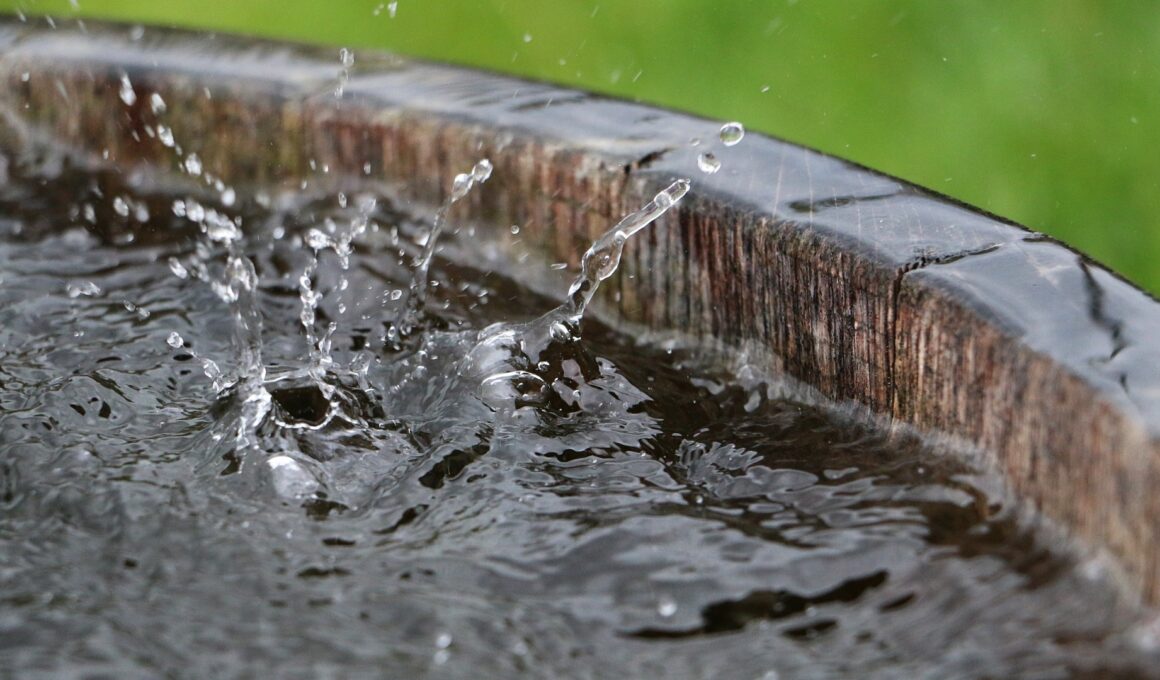There are numerous benefits to collecting your own rainwater. If you can treat it correctly then it can potentially be consumed but more likely it will be used for washing your home, your car or your animals, for showering, for watering the plants or for washing the dishes. This can then help you to save water which is not only good for the environment but also for your utility bills!
With a rainwater harvester, you can collect a lot of water for various applications and this is something that is becoming increasingly popular as we get increasingly more eco-conscious.
So why then is it illegal under certain circumstances?
The Law
While it is true that some states have made it illegal to collect rainwater, the situation has been exaggerated to some extent online. Eleven states in total have passed laws regarding rainwater but not all of these ban the use of harvesters. In fact some states actively encourage people to collect their own rainwater using tax incentives.
It was one case of illegal rainwater collection that went viral in 2012 and resulted in much of the controversy surrounding the issue today. 64 year old Gary Harrington was sentenced to 30 days in jail after illegally collecting rainwater on his own property in Oregon.
However, Gary was not imprisoned for collecting rainwater but for collecting 20 Olympic sized pools worth of rainwater. Gary used dams up to 20 feet tall in order to collect water across 40 acres. He used these ‘man made reservoirs’ for recreational fishing and filled them with trout, boats and docks.
As you can see, this was not a straightforward case and in this particular instance, Gary’s activities had significantly altered the geography of the area. This is less a case of collecting rainwater and rather a case of ‘diverting water’. Laws against diverting water understandably exist for the greater benefit of the environment as a whole.
Rainwater Collection States and Laws
Historically, Colorado had strict laws prohibiting the collection of rainwater. However this law was overturned in 2009, so that rainwater collection is now legal using specific collection systems.
The other states to have introduced rainwater collection laws include Illinois, Arizona, Ohio, North Carolina, Oklahoma, Texas, Rhode Island, Utah, Washington and Virginia. However, these laws aren’t prohibiting the collection of rainwater but rather outlining allowable collection methods and usage scenarios (as well as offering tax incentives in some cases). The regulations that are in place are invariably there to prevent situations precisely like Gary’s, as well as to prevent the sale of rainwater for drinking without proper treatment. Of course you might argue that in some cases the laws are overly restrictive but in all cases the main objective is to excessive use of large scale water collection that may have an environmental impact.
So why all the fuss? The answer is simple: people on the internet like a good bit of gossip! Story’s like Gary’s appear to lend credence to the idea that our civil liberties are being encroached upon and for those who don’t like their local government, that’s perfect fodder.
Perhaps in some cases the laws could do with a littler modernization but there is no grand conspiracy here.





30 YEARS in jail?!!! That’s a pretty tough sentence to say the least for such an offence… Shouldn’t your article actually read 30 DAYS, many orders of magnitude of difference… and closer to the actual fact too?
You may want to re-read the article before you post corrections.